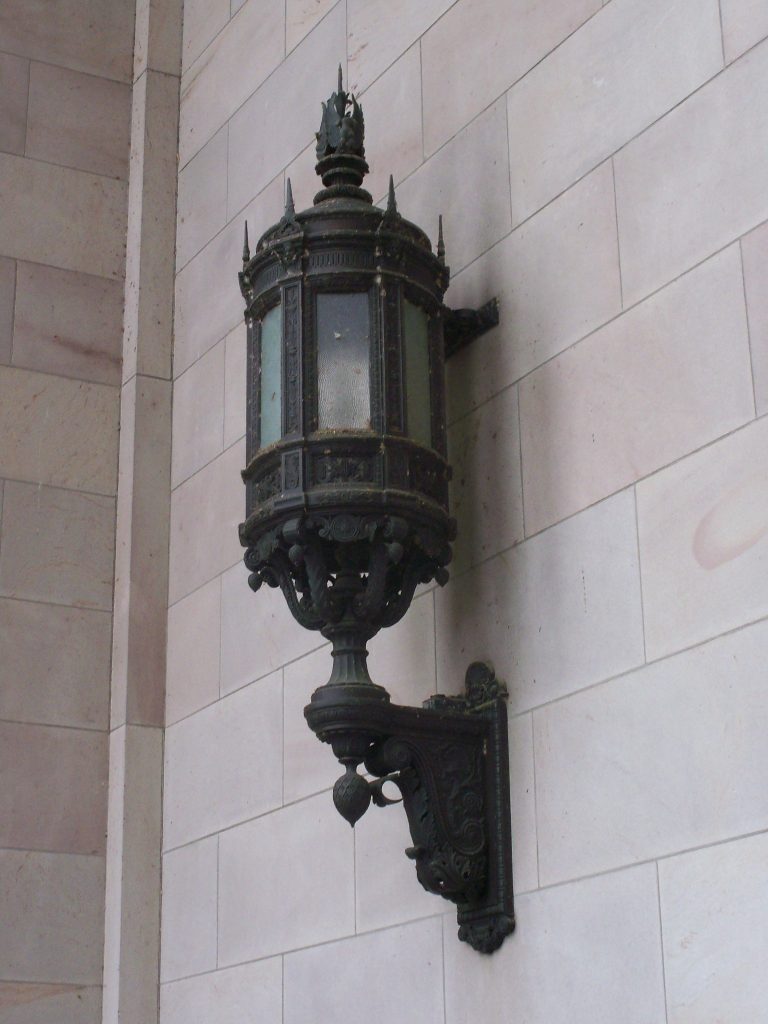Fancy lighting. Washington State Capitol.
Wednesday, 7 June 2023
Therefore he reasoned in the synagogue with the Jews and with the Gentile worshipers, and in the marketplace daily with those who happened to be there. Acts 17:17
Note: You can listen to today’s commentary courtesy of our friends at “Bible in Ten” podcast. (Click Here to listen).
You can also read this commentary, with music, courtesy of our friends at “Discern the Bible” on YouTube. (Click Here to listen), or at Rumble (Click Here to listen).
The NKJV, though cleaning up the KJV in some areas, is still not salvageable. For this commentary, the following will be used: “Therefore, indeed, he was reasoning in the synagogue with the Jews and those worshiping, and in the marketplace on each day with those meeting him” (CG).
In the previous verse, Paul’s spirit was provoked within him because the city of Athens was given over to idols. Because of this, it next says, “Therefore, indeed.”
The intensity of the matter is seen in this. Luke takes Paul’s situation and highlights it. He will then explain what Paul’s response to the idol-filled city was, beginning with, “he was reasoning in the synagogue.”
This is the same thought as that of verse 17:2, which said, “Then Paul, as his custom was, went in to them, and for three Sabbaths reasoned with them from the Scriptures.” The imperfect verb shows a continuing effort. He didn’t just go in, give his thoughts, and sit down. Rather, he continued to reason with those in the synagogue. In this, his reasoning was “with the Jews and those worshiping.”
This was his usual habit. He would reason with those who already knew Scripture about their need for Jesus. His reasoning there would be just as with those in Thessalonica and Berea. He would be “explaining and demonstrating that the Christ had to suffer and rise again from the dead, and saying, ‘This Jesus whom I preach to you is the Christ’” (Acts 17:3).
However, this was not his only time of discourse. The intensity of wording at the beginning of the verse is more fully realized in his efforts that went beyond the synagogue. That is seen in the next words, “and in the marketplace on each day.”
Paul took no time off but went into the agora [public center, market area]and spoke out against the idolatry that filled the city. His spirit was so moved within him, that he could not constrain himself to simply talk to those in the synagogue, waiting for them to be moved by (or rejecting of) his words. This speaking in the marketplace wasn’t just to Jews and proselytes, but “with those meeting him.”
Being the public meeting place, even if he was originally only speaking to those who came from the synagogue, others could hear. In hearing, if they were interested in listening, they could then engage in the conversation as well. This will be seen in the next verse.
Life application: It isn’t known who Paul initially spoke to in the marketplace, but it may have just been people he reasoned with on the Sabbath at first. In other words, “Meet me at the agora and we can have some tea and talk more about what you heard today.” By speaking to them in public, it would provide a chance for anyone to hear his words.
This is a good way of getting new people to listen to what you have to say. If it is a nice day and you have the opportunity to have a Bible study in a park, on the beach, or in some other public place, people will naturally slow down and listen as the teacher speaks. That may spark curiosity and a desire to know more.
Consider this avenue. It is non-confrontational like street preaching because anyone listening is leaning into a group meeting, and so the event is passive. Street preaching, on the other hand, is actively targeting people.
Despite the non-confrontational nature of such a meeting, there are some who will be offended by you exercising your rights in public. They may be the ones who get confrontational, so be prepared for that as well. Paul faced this, and you might, but it is still a great way of passively getting people interested in the Bible.
Lord God, the church isn’t just a building and a set time to meet. The church is comprised of people wherever they are and whenever they meet. Help us to be willing to teach, instruct, and lead others to You at any time and in any location. May the church grow because we are willing to put forth effort among those we encounter. Amen.

